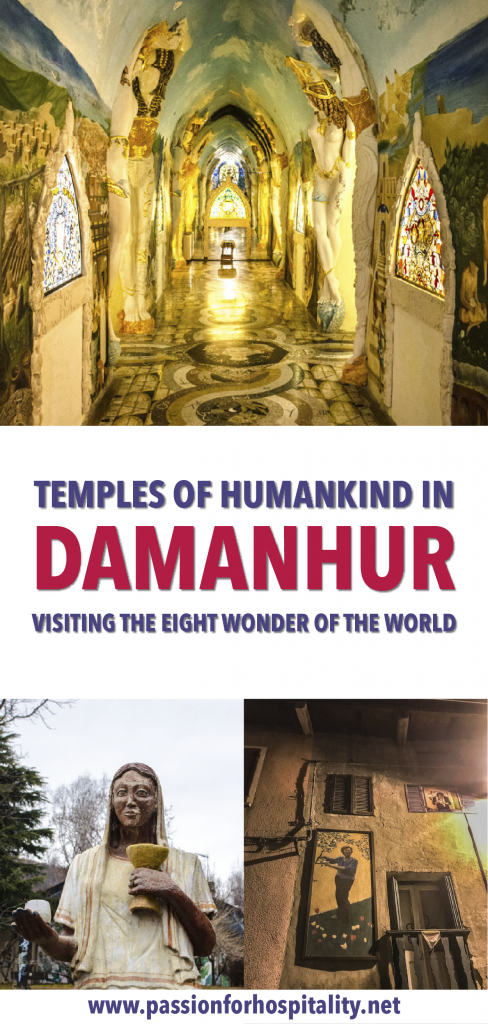We often believe that in order to experience miracles, we have to travel far and wide. In the hope of finding ourselves we plan spiritual pilgrimages to Bali and India, but in reality there are places much closer to us which we could never imagine that exist.
“Have you heard of Damanhur, a separate Federation in Italy?” said A over dinner as we got together to celebrate Russian Orthodox Christmas. I considered myself quite knowledgeable of one of my favourite neighbouring countries, until that moment. Without much hesitation I pulled out my phone, googled it up and glimpsed at the gorgeous images of the Temples of Humankind. As I read the lines… Eighth Wonder of the World, underground temples nestling in the foothills of the Alps, my curiosity sparked — and as a person who doesn’t like to procrastinate too much I booked the flights to Italy.
Temples of Humankind in Damanhur: Visiting the Eighth Wonder of the World
Exactly a month later we landed in Bergamo, the route has been mapped out but until the very last minute I was not sure if I would be able to return with images. Although visiting Damanhur is highly welcomed, that’s of course if you know of its existence in the first place, only few get permission to photographing the Temples of Humankind and not everything.
Where is Damanhur?
Damanhur, a Federation of spiritual communities lies at the foothills of the valley of Valchiusella, right next to the small village of Vidracco, approximately 40 kilometers north of Turin.
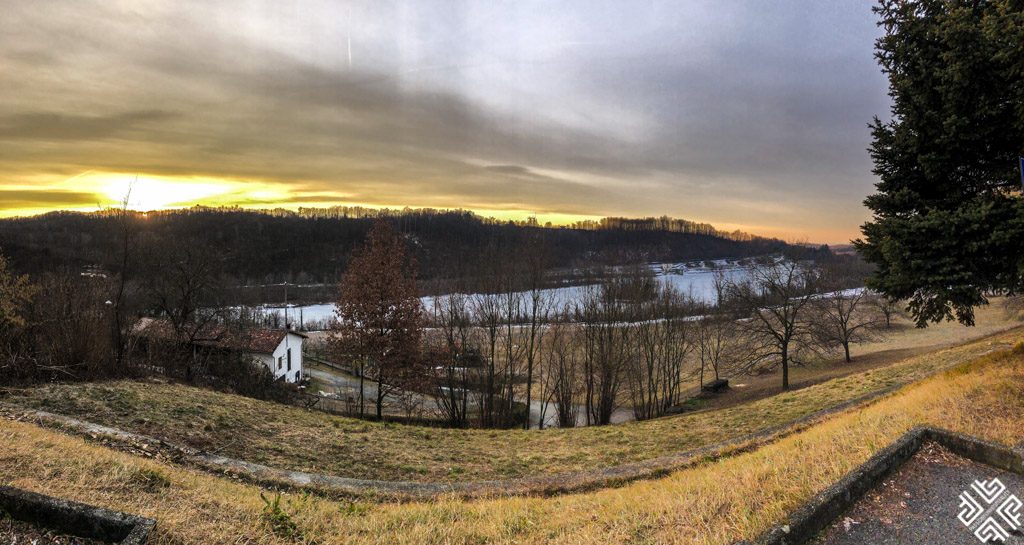
Small in size but rather creative in character, walking around the narrow streets of Vidracco you will come across marvellous works of art which adorn the buildings. It feels like walking through an open air gallery. The population of Vidracco is just over 500 inhabitants, the surrounding area is of great geological and natural interest and was once a Celtic settlement. Today it is home to one of the most stunning masterpieces created by humankind.
Damanhur is a multilingual community of 600 people who live in Damanhur and approximately another 500 are based around the world. They have their own constitution, culture, arts, music, schools, and uses of science and technology.
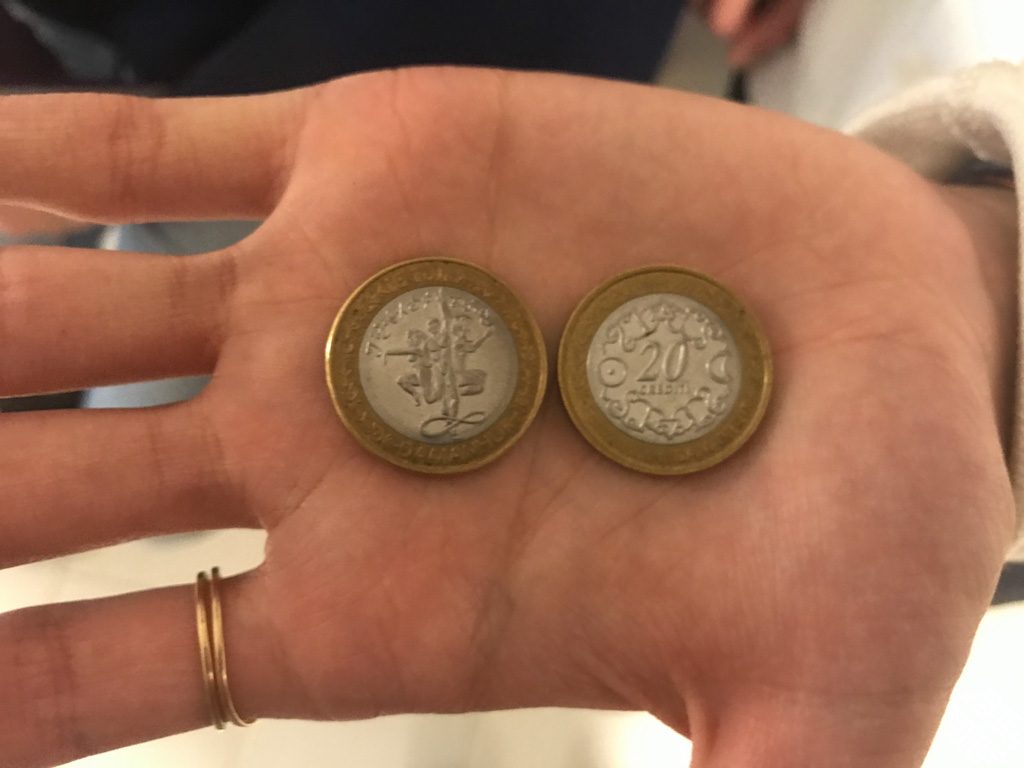
They have their own currency known as Credito which has the same value as Euro.
A visit to Damanhur
On the next morning of our arrival after enjoying a typical Italian breakfast at the Damanhur Crea (based inside a former Olivetti factory which was abandoned for 20 years) which today houses the art, research and wellbeing workshop of Damanhur, awarded as a model of sustainable society by the United Nations in 2005, we headed towards the Damanhur Welcome Center.
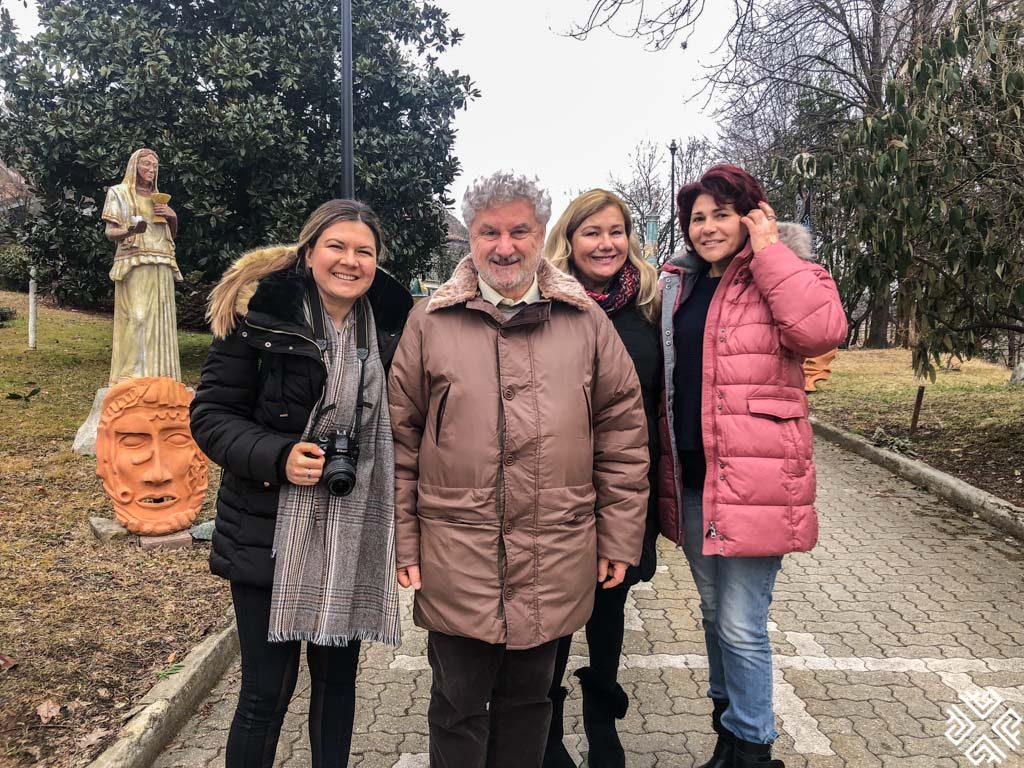
With Coboldo Melo
Here we were met by Barys, who was born and raised in Damanhur and today manages the international networks of Damanhur and the head of Press Office, Coboldo Melo.
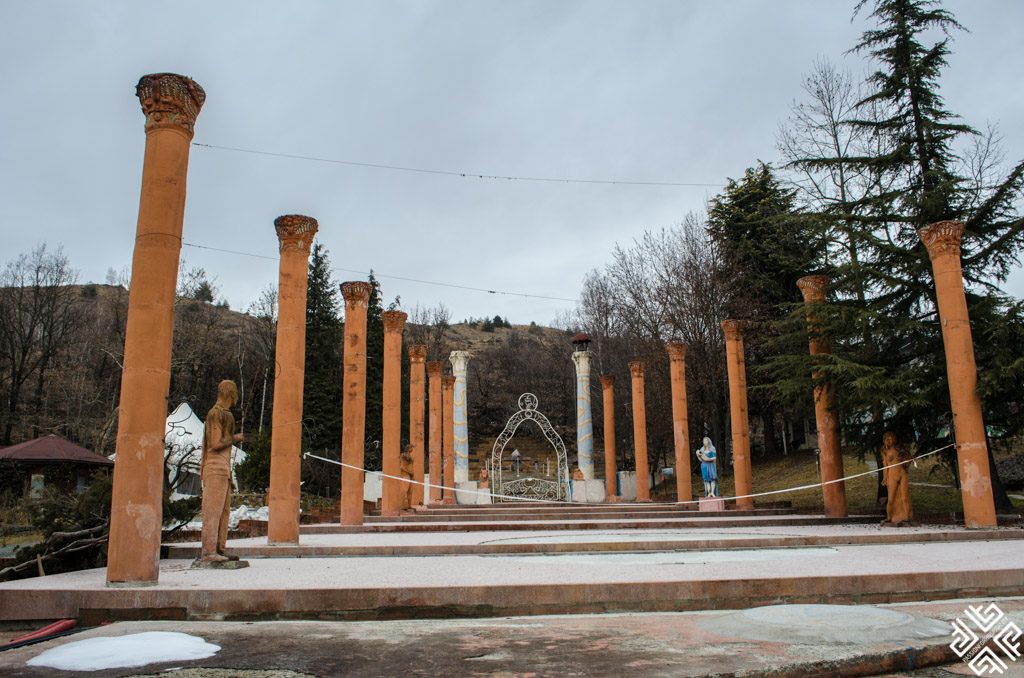
Open Temple
After a tour of the Open Temple surrounded by statues and columns, where on a monthly basis a ceremony is held to connect with the oracles and interpret the answers, we carefully listed to our guides as they shared their knowledge and answered questions about the daily life of the Damanhurians.
Everything at Damanhur is an instrument that can be used to help you in your journey of self discovery and tapping into your glorious potential. By continuously pushing your boundaries, by leaving your comfort zone and by practicing your art with dedication and perseverance, only then you can lift your qualities and accomplish great things.
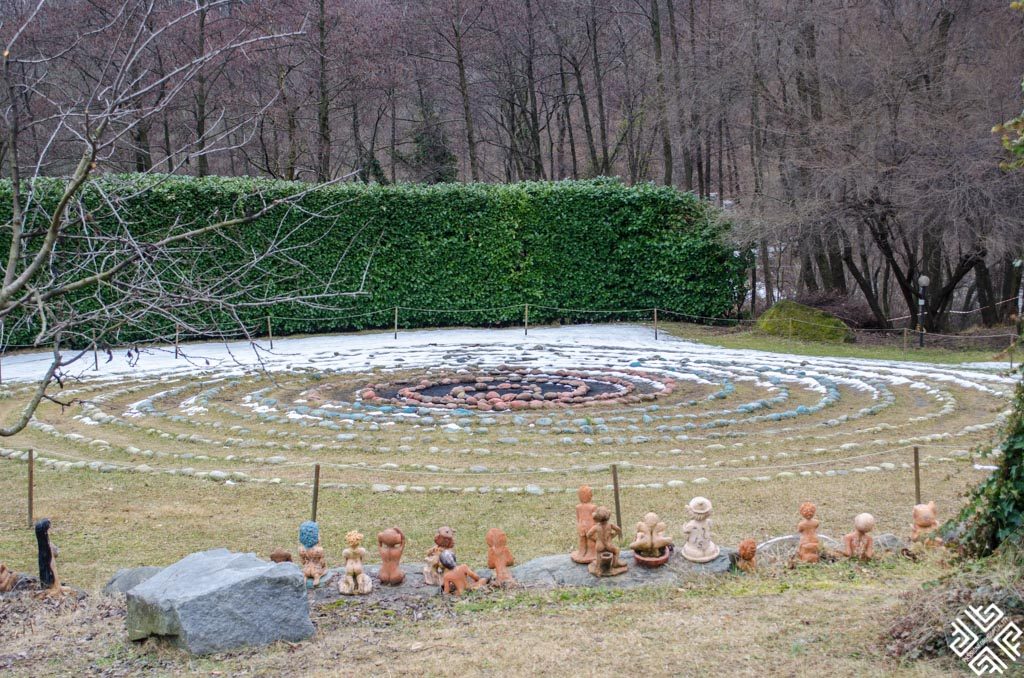
Spirals can be found all around the area of Damanhur
Living and thinking small leads to a mediocre life, the one many choose to follow, not questioning, not searching and not digging deep inside ourselves.
The whole existence of the Temples of Humankind a project which was carried out by Oberto Airaudi known as Falco, who had a vision from a young boy and over the years developed the powers through the use of Alchemy to finally find the place where the most magnificent underground creation became a reality. After my return from Damanhur I also read the book with 33 Tales written by Falco about his rather fascinating childhood years and the journey towards finding his mission to create something so mind-blowing as the Temples of Humankind.

Supermarket at Damanhur Crea
There is a lot that I learned from my visit and through the pages of the book, better to say I discovered some of my own interests and perhaps some answers. I will not go deep into analysing the whole experience but rather I want to leave you with a thought, that when you seek you shall find, whatever that is to each and every one of you.
Falco believed that people are capable of much more and could accomplish great things only if they went out to find them. Other great leaders and world changers also endured hardship, dedication and consistency in their work to produce the masterpieces which today shape our history.
So why was the Temple of Humankind built exactly here?
You might have this question, well I did. Coboldo Melo explained that it is the crossing point of energies, the axis where the four of the 18 worldwide synchronic lines intersect. In fact on a warm August night in 1978 it is here that Falco and 10 other Damanhurians whiteness a large falling star, which marked the beginning of a mission to dig deep into the heart of Earth.
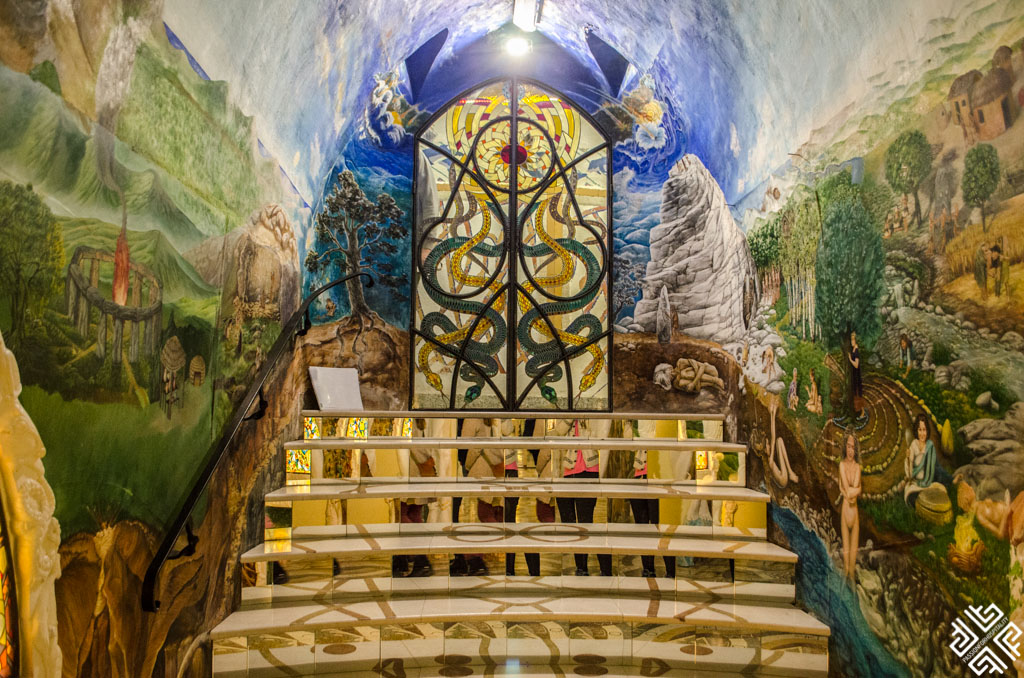
The digging was done by hand, consistently working as a team and following precise calculations and measurements. The excavations went on secretly for 16 years and the only people who knew about the project were the ones carrying out the work. Until someone secretly reported the project and in 1991 the Italian Government got involved to investigate the case and threatened to blow up the mountain. A few years of a hard battle to protect this masterpiece which had no official licence to be constructed in the first place, the Damanurians won their right and the Temples of Humankind were saved. You can read more about the story here.
Knowledge should be shared
“Study should not be kept to yourself, it is wasted knowledge” explained Coboldo. We must be willing to share what we have learned in order for the world and humankind to evolve. And also wisely pointed out, no one will do the work for you, it is your sole purpose to do your own research and look inside yourself because in the end of the day happiness comes from within. Damanhur is a spiritual path that invites citizens to follow their own process of self realisation and to search for the meaning of our existence, always being in harmony with the environment.
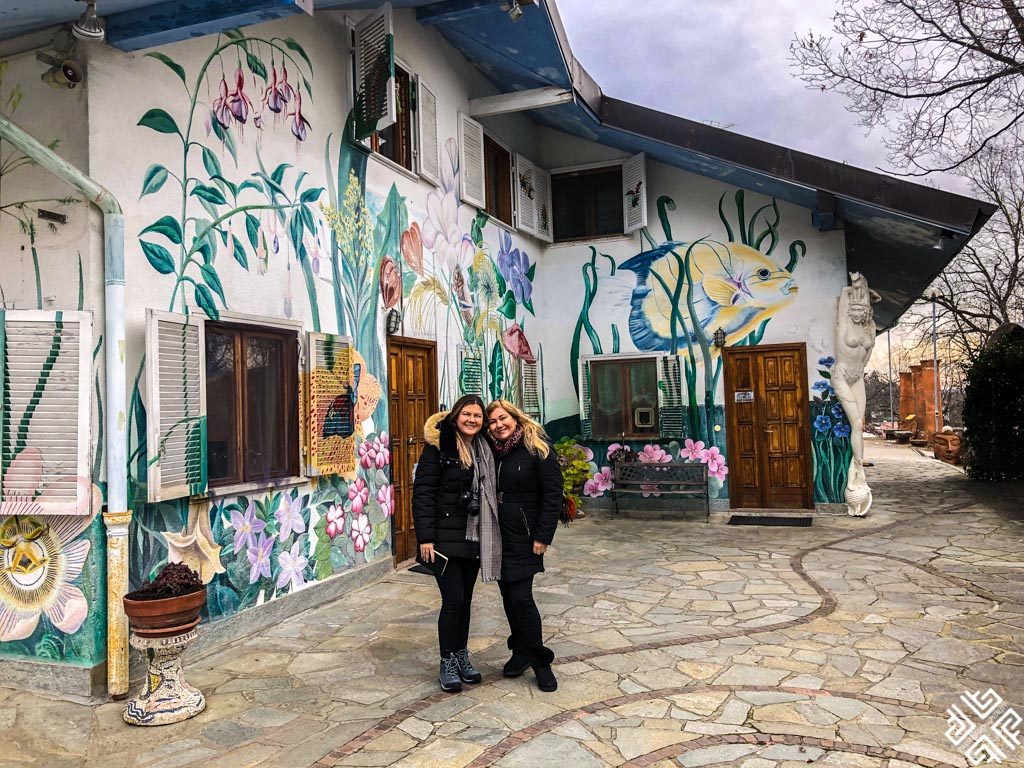
After learning about the nucleo communities where all the Damanhurians reside and how they manage their life in their communities, Barys also explained how he grew up and that he was born into a big family. In Damanhur you have the sense that you live with many aunts and uncles, each one contributes to your growth and knowledge. You are exposed to different kind of people, ideas and are invited to have an open mind. Life here is a game and embracing change is welcomed with adventure and humor. The success of living together is in fact that although individual development is celebrated, “we” is highly respected and is the pinnacle of being. You have to learn to live with others, to respect others and to get rid of feeding the ego.
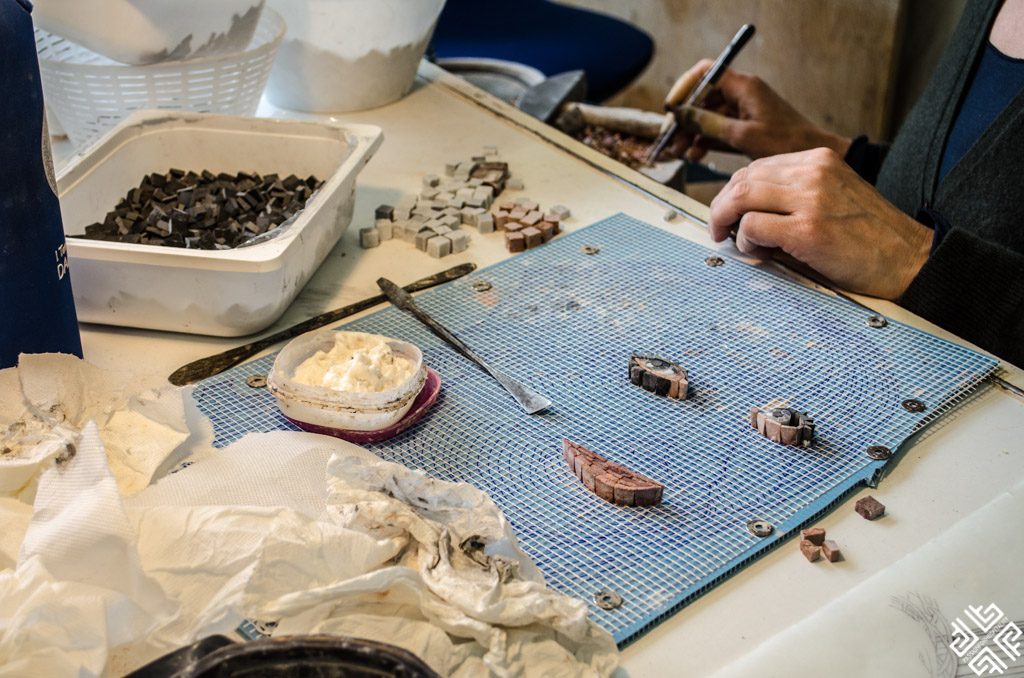
Making of mosaic floors
After an introduction to the fundamental points that make up Damanhur, of course we only scratched a surface but it was important to also visit the Art workshop where we witnessed an artist make the mosaics which are then transferred into the halls of the Temples of Humankind, and learn about the music of the plants.
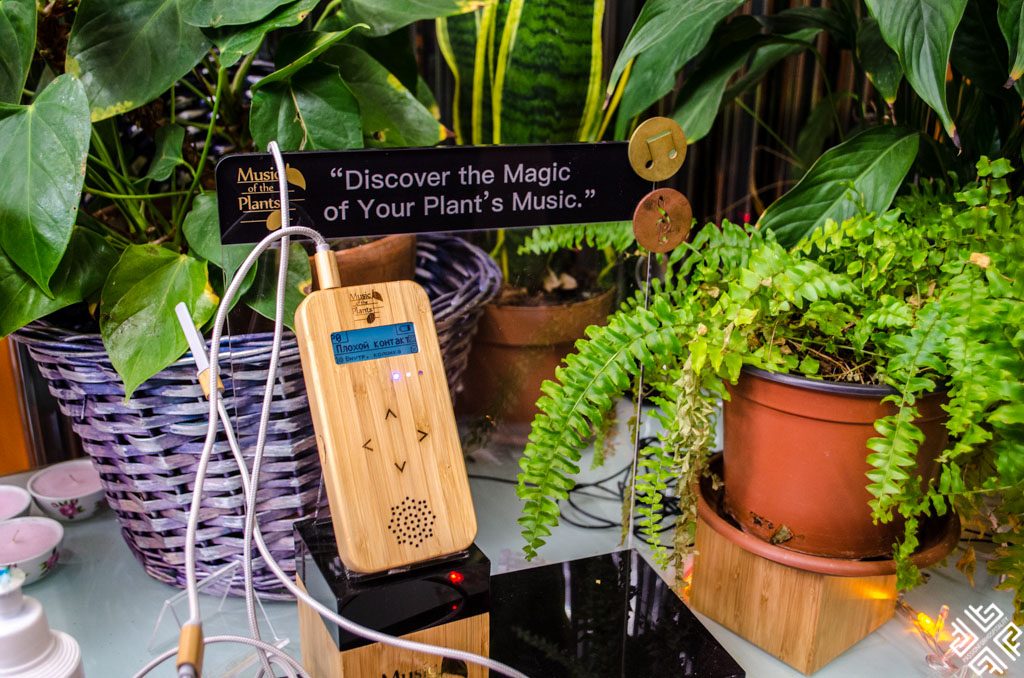
A special portable bamboo devise has been created which is a profound way to connect to nature and listen to the music produced by the plants. By tapping into the electromagnetic variations on the surface of leaves and roots of the plants to translate them into sound, action and movement.
The art of Selfica
The Selfica discipline was introduced to Damanhur through Falco Tarassaco’s studies and experiments and is focused on diverting energies to perform different functions which are connected to wellness and help to amplify personal development.
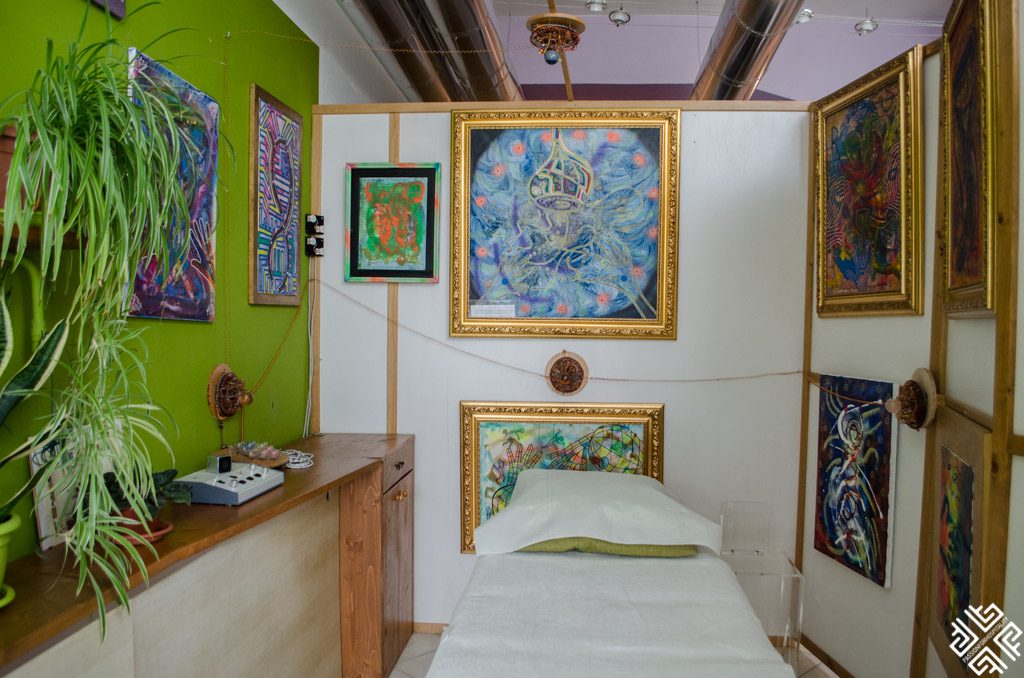
Wellness center that uses Selfica healing techniques
We had a fantastic afternoon with Esperide Ananas who is a spiritual researcher and conducts research in the field of Selfica as well as the energy structure of human beings. Esperide lives in Damanhur for over 20 years, she speaks perfect Greek and we shared some wonderful stories of her earlier memories of the Greek islands and the special light that Greece has. Esperide introduced us to the Selfica and how its use dates back to the Egyptian, Etruscan, Celtic and Minoan civilizations. According to a legend it was also present in mythical Atlantis.
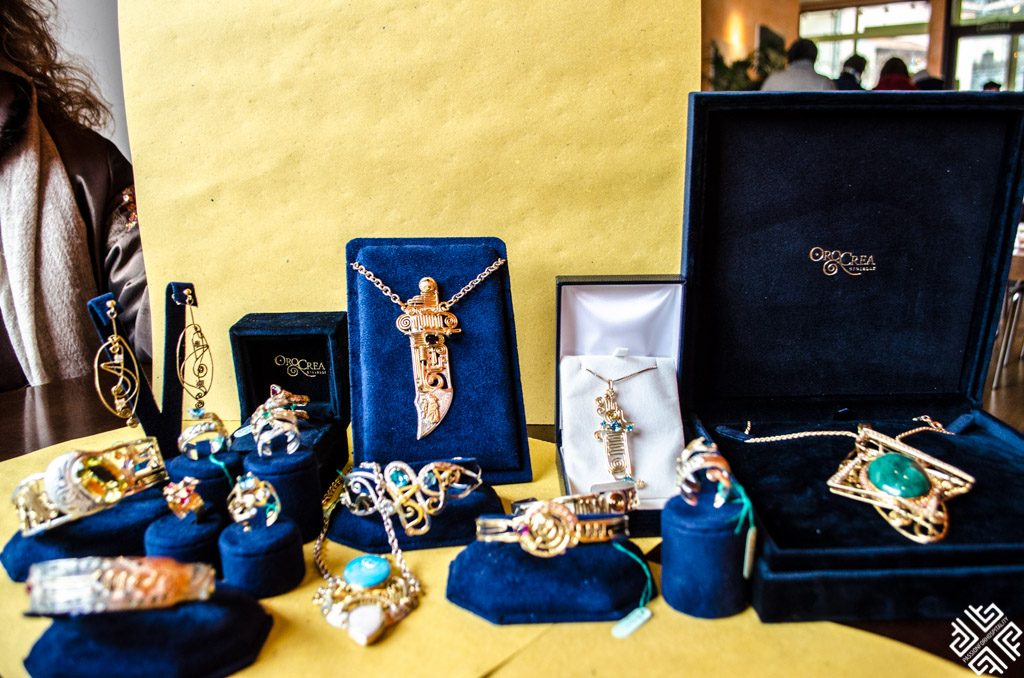
Jewellery made incorporating Selfica designs
The Selficas are in fact spirals which are made of metals, minerals, colours and special links that all act as conductors for intelligent energies. The biggest Selfica ever created is the Temples of Humankind.
The Magnificent Temples of Humankind
After our tour around the Damanhur Crea we followed the road up the mountain. It was almost three in the afternoon the air was crisp and we arrived in front of an iron gate.
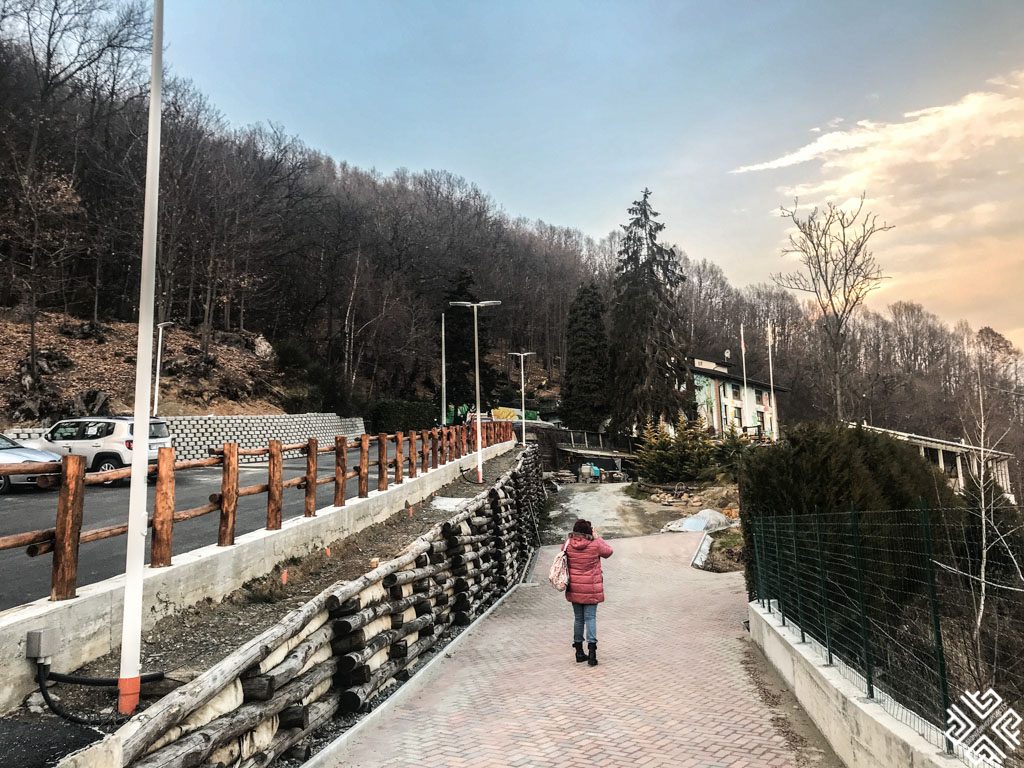
The surroundings did not imply anythings special, just bare trees that have lost their foliage during winter, a mountain highlighted by empty branches as far as the eye can see. It was peaceful, well of course we were almost in the middle of nowhere. We entered a small two storey building which was painted with art murals on its forefront, this will be the site where you can get close to your dreams almost get the exact same feeling of sleeping in the temples. Beautiful modern rooms with hand painted walls that depict the artwork of the different halls.
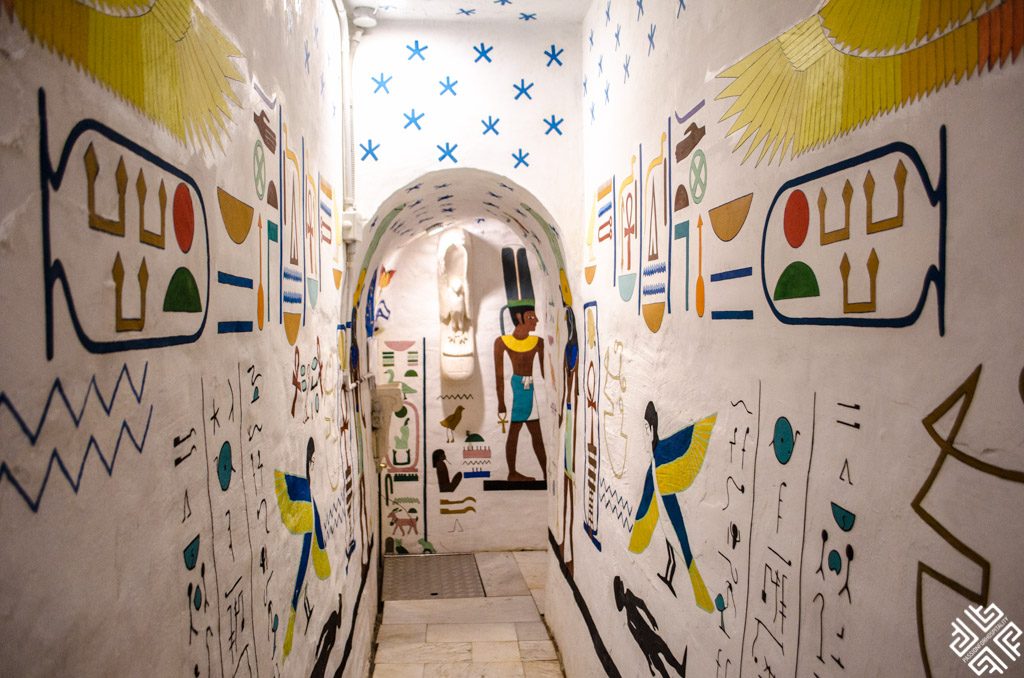
Esperide led us through the hallway to a white wall, she said “Can you see the door?” We started searching to find a line indicating signs that there must be something behind and slowly the wall began to move inwards and we stepped in.
Following a few narrow corridors adorned with Egyptian drawings, Esperide explained that this was done on purpose to confuse those who would come across it in the earlier years as being an Egyptian temple. In fact Damanhur was named after an Egyptian temple meaning City of Light.
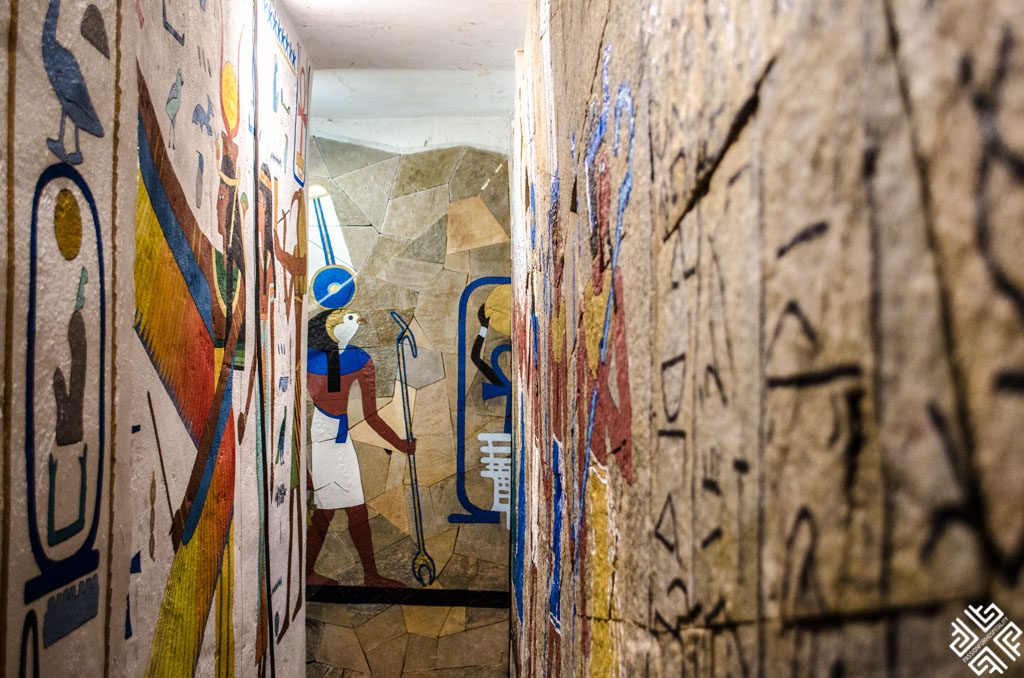
The doors opened and we walked into a dome shaped hall. This place is something that only a few get to see, and of course no photos were allowed but although there are 8 halls open to the public the Hall of People portrays what the vision of Damanhur is for humanity. I cannot describe the feeling of awe that flooded my body, standing underground of a mountain literally in the middle of nowhere I looked up at the ceiling, my eyes were running around trying to absorb this incredible masterpiece with 3-D elements. At that point you realise how small we are in this vast universe of infinite possibilities and how far imagination can take you. The perfect world would be the one that lives in harmony, that knows no religion, race, or colour. Not-judgemental but accepting and ever evolving. Technology is an instrument to be used to make lives easier but on the contrary it has made the world emptier, glued to our screens we forget what it’s like to form real connections, to show real, human interest and to motivate each other to grow both mentality and spiritually. I got that taste of the perfect world.
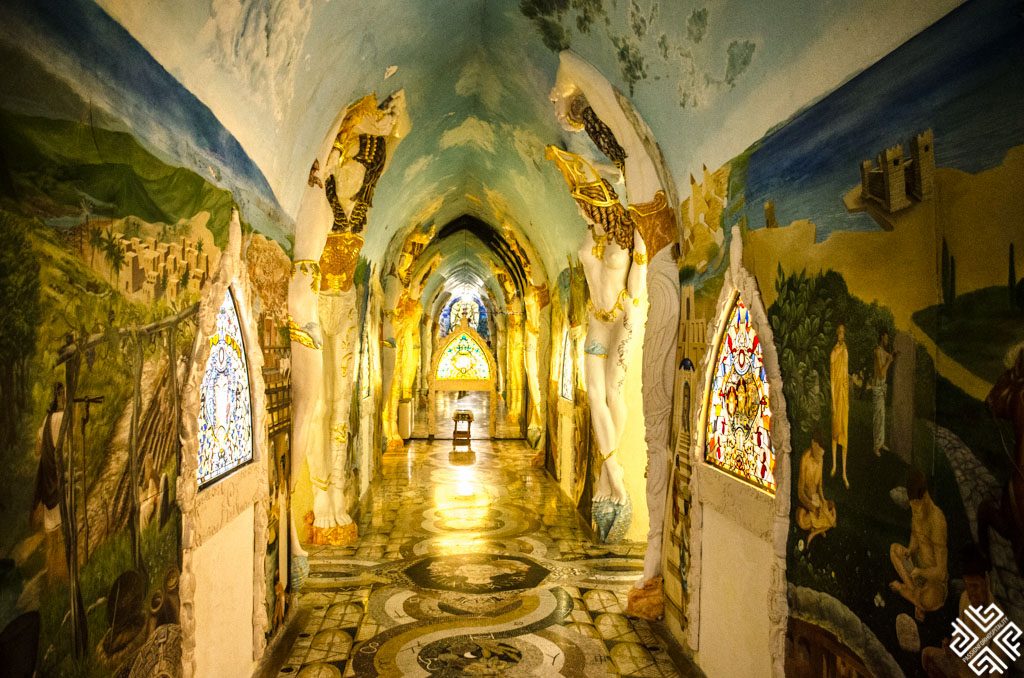
The Labyrinth
We then walked through the Labyrinth and followed a few steps to the new wing that is still is not accessible, no photos here either but the artwork of the different gods portrayed on the walls and the level of detail in the mosaics on the floors was absolutely sensational.
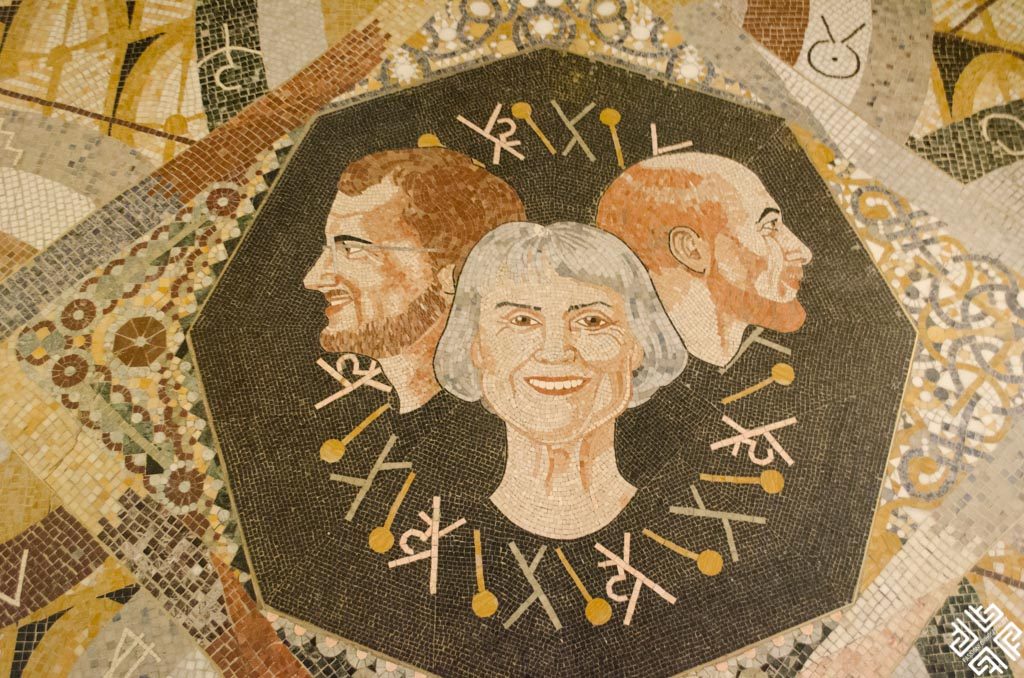
After having visited the art workshop and watching the lady carefully cut and polish each stone by hand, my heart ached when stepping on the masterpieces. Something so beautiful, you must approach it delicately.
The Labyrinth shows the evolution of the world, the civilazations, the wars and the cultural representations. If feels like walking through the history of humanity.
The first hall that we entered was the Blue Temple, an image of a woman made of mosaic is found in the middle which represents the Star (symbolizing idealism and beauty), and here you will find a bright blue sphere that is used for meditation and to seek answers to your questions.
The acoustic system in this hall was unbelievable, standing in the middle as you spoke, you could hear your voice bounce back to you intensely something that those outside the middle could not hear.
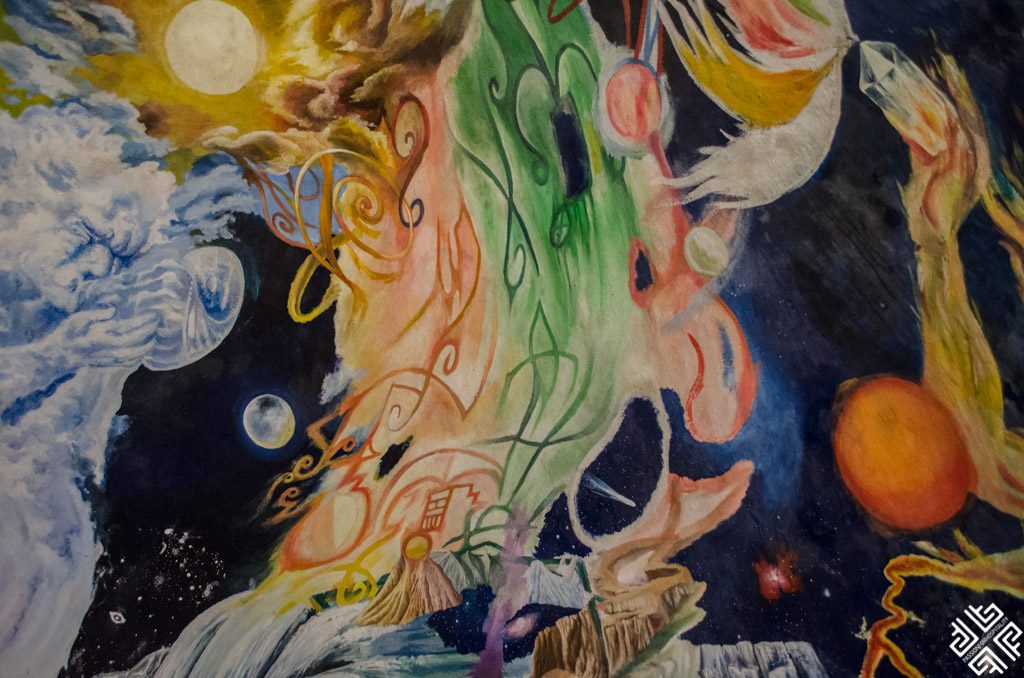
To them the words you spoke sounded normally. This hall prepares you for what you are to see next.
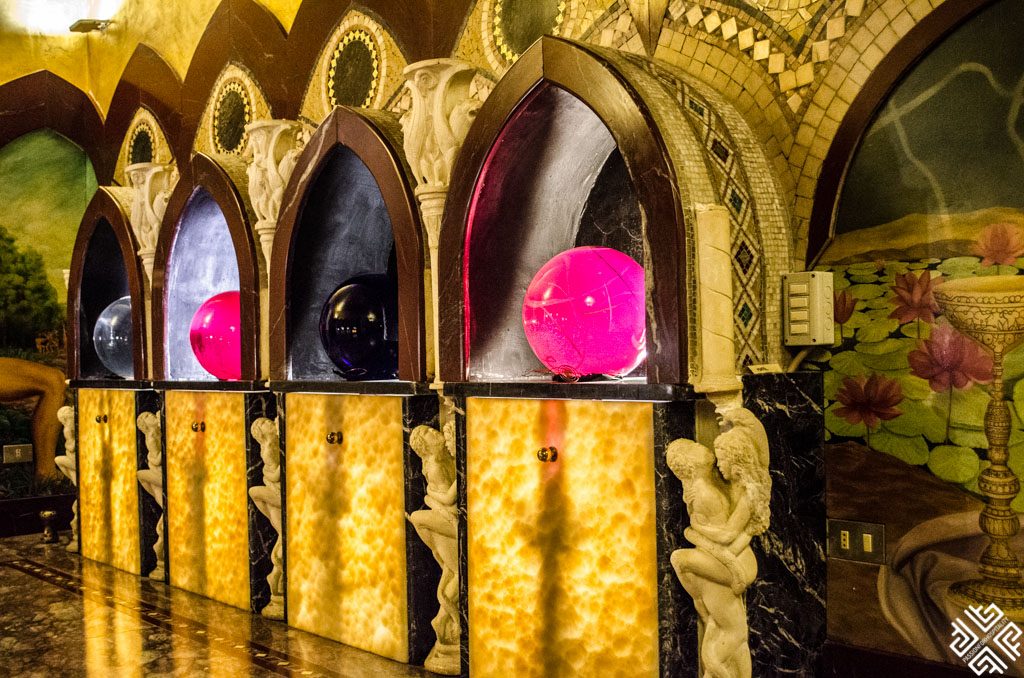
The Hall of Spheres is the heart of the Temple and houses the refined energies that flow through the Temple. Nine spheres in total containing alchemical substances in different colors. This hall is used for meditations with one’s soul and stimulates spiritual growth.
The Hall of Mirrors is a masterpiece to be celebrated on its own, the stunning dome made in Tiffany glass in colours representing the rainbow. Underneath the cupola there is a balcony that runs across the entire perimeter of the hall and is decorated with glass mosaics that are dedicated to Solstices and Equinoxes.
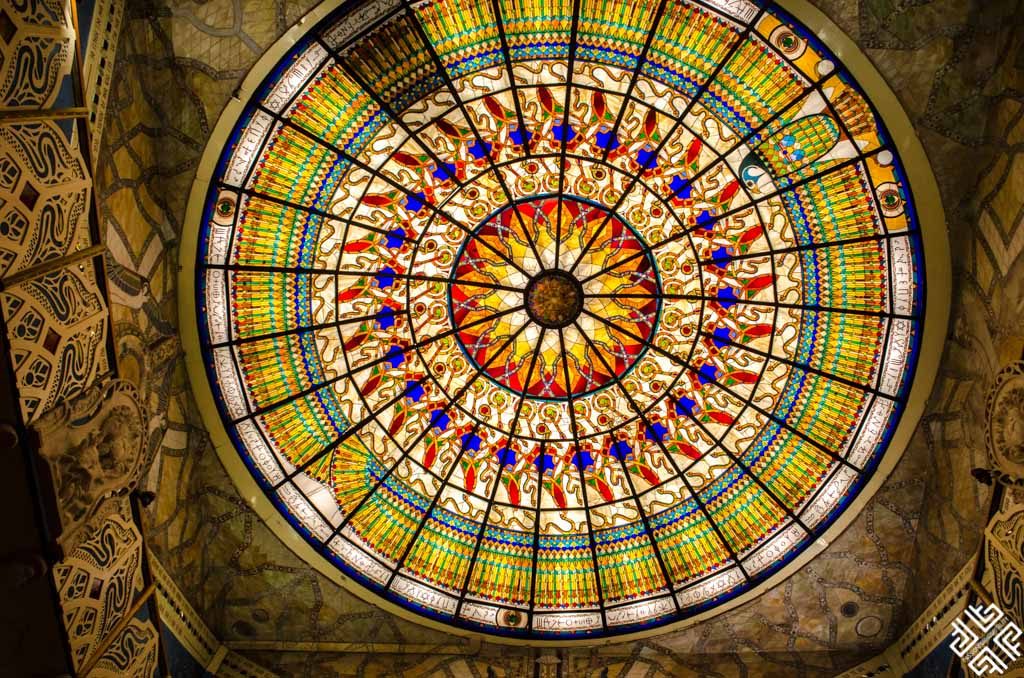
A black marble circle dominates the centre of the floor surrounded by a red granite pavement. The glass work surrounding this hall is dedicated to the alchemical elements.
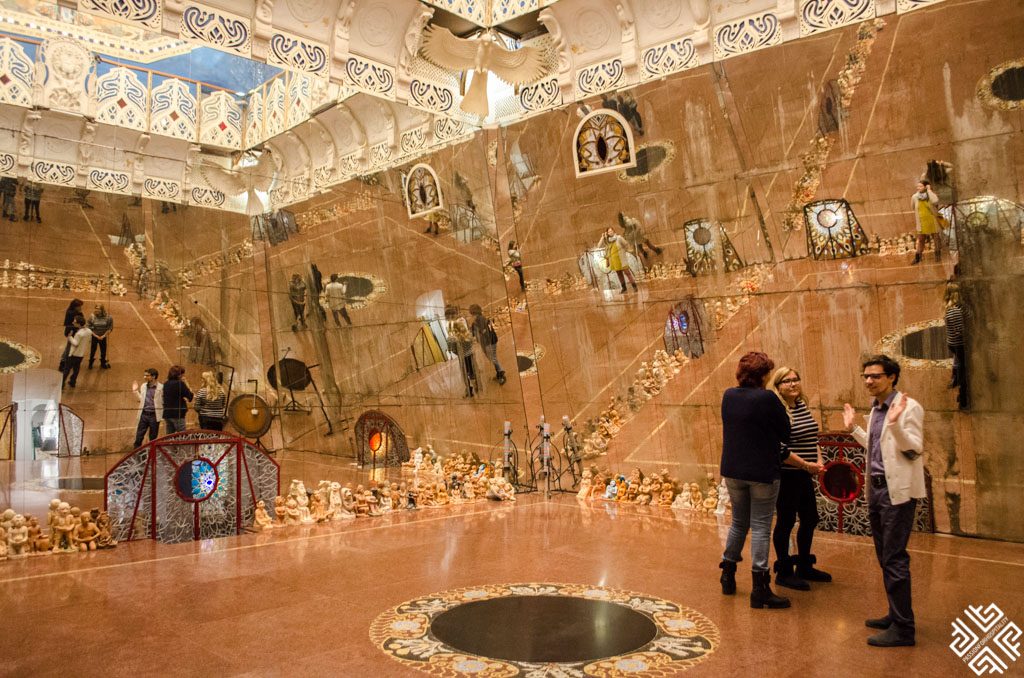
Barys then switches of the lights and as we sat in the middle he gently touched the gong, and its frequencies started running though the temple, the sound almost taking over our body, I could feel goosebumps. Apparently the ritual produces vibrations that harmonise the energetic centres of the body.
The Hall of Water was actually Falco’s hall and all the works in there were created by him. It is a vast library that is filled with diagrams, symbols and self schemes. In his book Falco wrote that he had two personal diaries, one obvious one and one not.
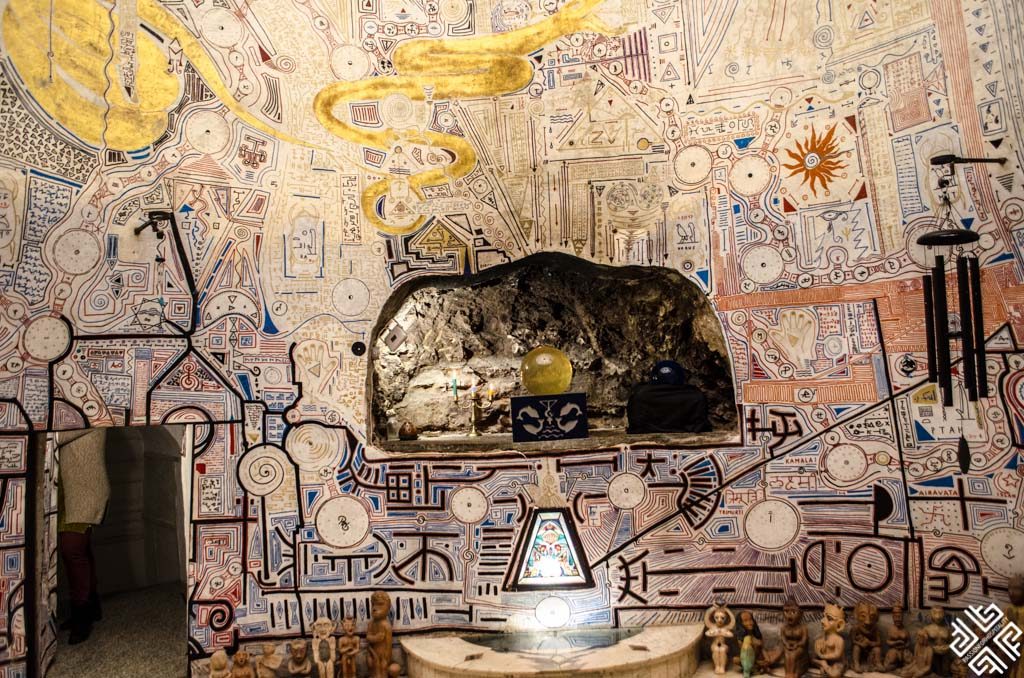
Perhaps I would think this is his obvious diary. The Temple is dedicated to feminine principle and the female divine forces, there is a beautiful mosaic cupola in this Temple too. Smaller in size than the one in the previous Hall of Mirrors but equally impressive.
The four dragons that are portrayed in old leaf on the walls symbolise the four Synchronic Lines that are pathways of energy that unite the distant worlds in the galaxy. It is used for life cycles and in preparation for childbirth. The acoustics here are also magnificent.
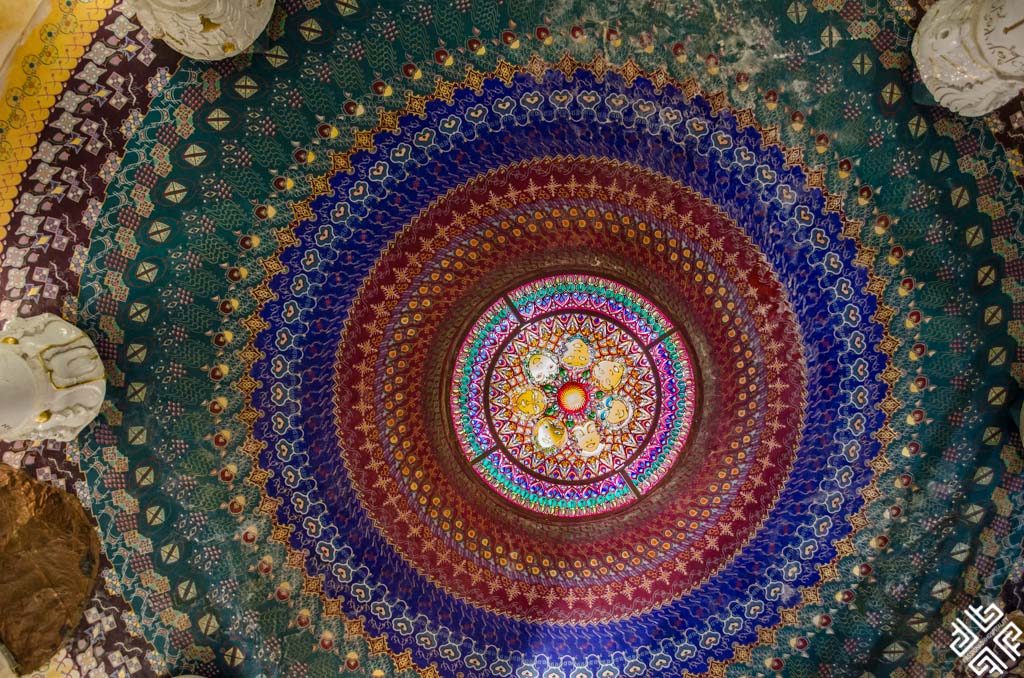
We then took narrow stairs which led us thirty meters underground to the Hall of Earth which are actually two circular rooms that depict an infinity loop, one larger than the other to encourage growth.
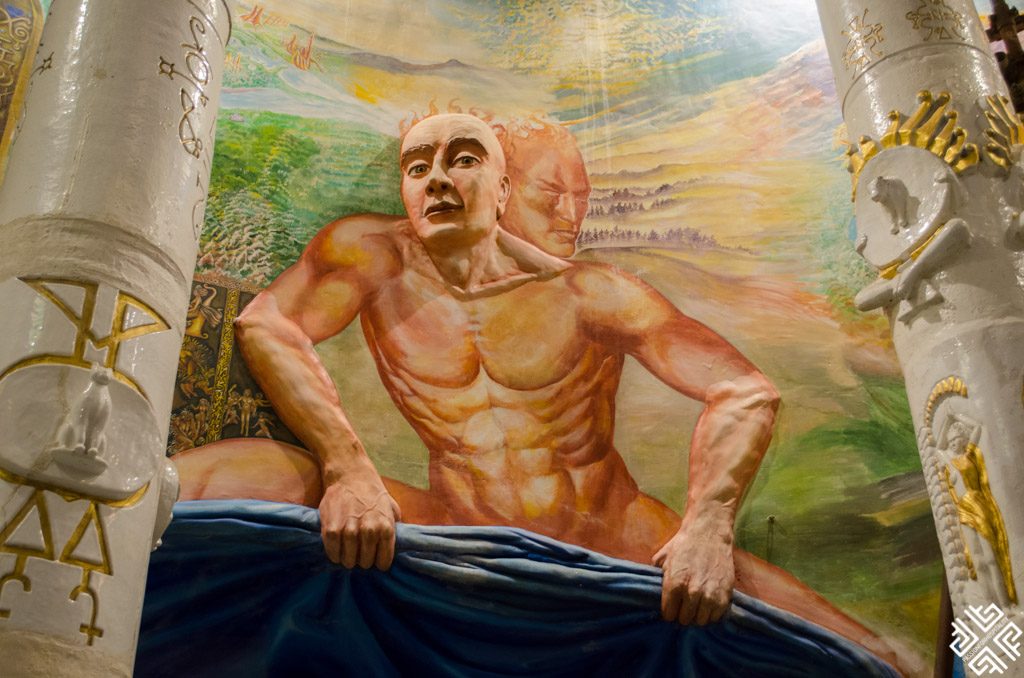
In the Upper Room there are the gorgeous mosaic doors, one representing the Sun and the other one the Moon.
The perimeter of the hall is surrounded by high-rising columns decorated with gold leaf motives. The walls tell a story of Damanhur and its philosophy. The Lower room shows the cycle of life, both individual and cosmic time. Barys then switched off the lights and we admired the twinkling Galaxy portrayed on the ceiling.
The final hall which we visited was the Temple of Metal dedicated to metal and times. There are 8 glass windows that represent eight faces which represent life stages.
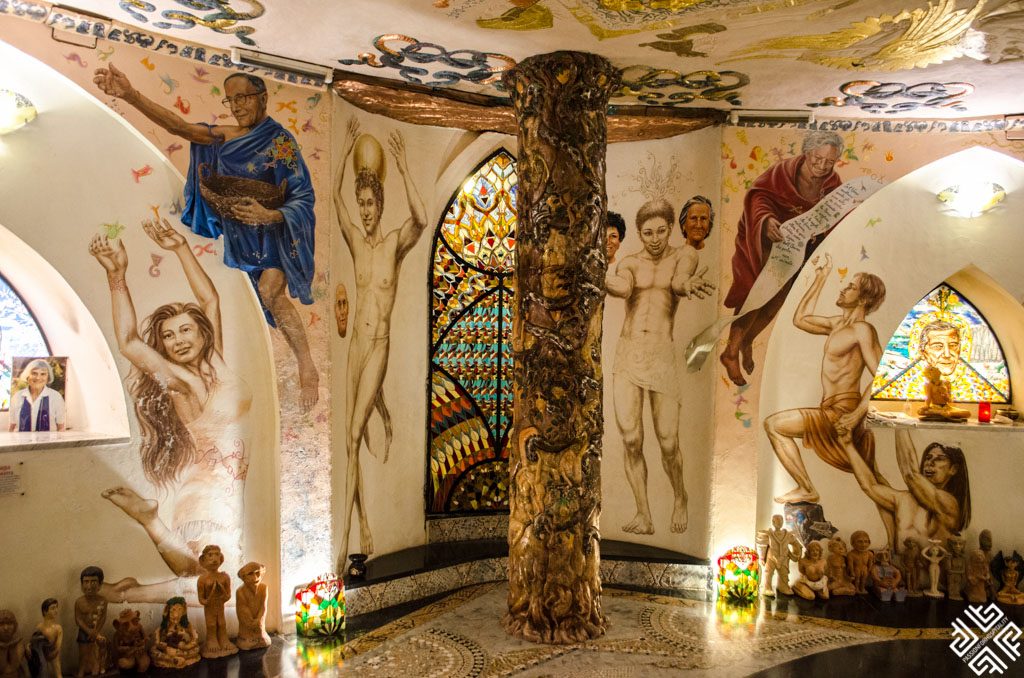
Different metals are associated with each life cycle and the oldest one is connected to gold which is the symbol of human existence as a journey to achieving spiritual refinement.
There are four doors made of Tiffany glass dedicated to four elements of air, water, earth and fire. Each door is sort of blocked with a column which represents the fact that we have to make decisions in which direction we will follow.
This is linked to time and the dimensions with physical life and beyond. The hall is used to make inspired life choices.
We then walked through the part of a cave that was left uncovered to witness how the actual process of digging the Temples of Humankind started.
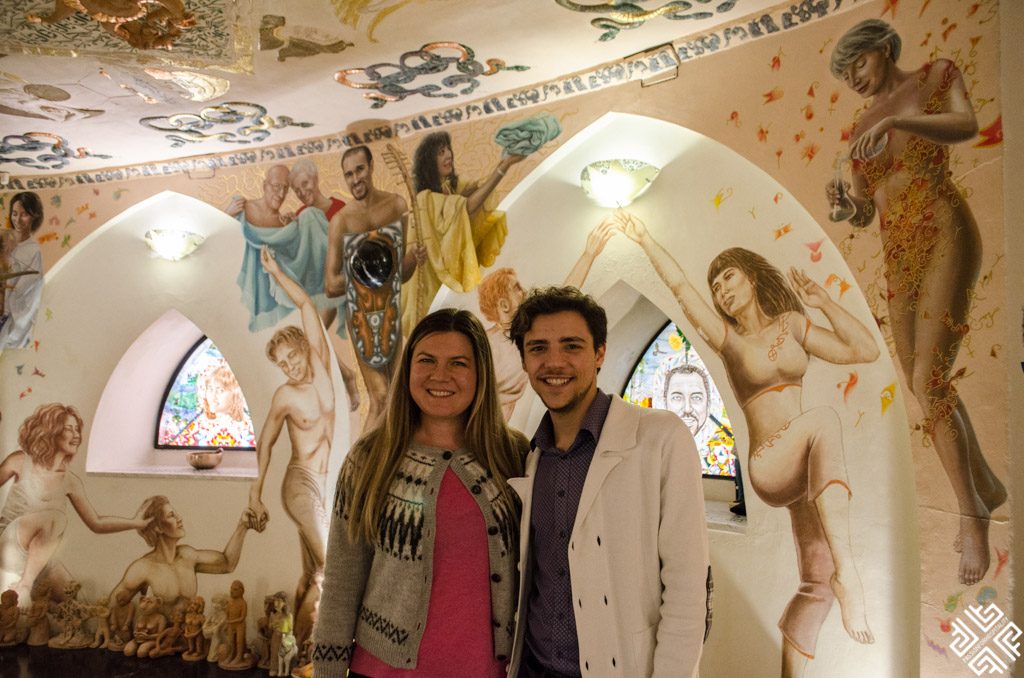
With Barys
The Halls are located on five different levels.
One must see it to believe that such creations are even possible. I have seen many beautiful temples and monuments over the years, but to actually witness such a spectacular sight 30 meters underground, makes you question, what else is there in this world that we don’t even know that exists?
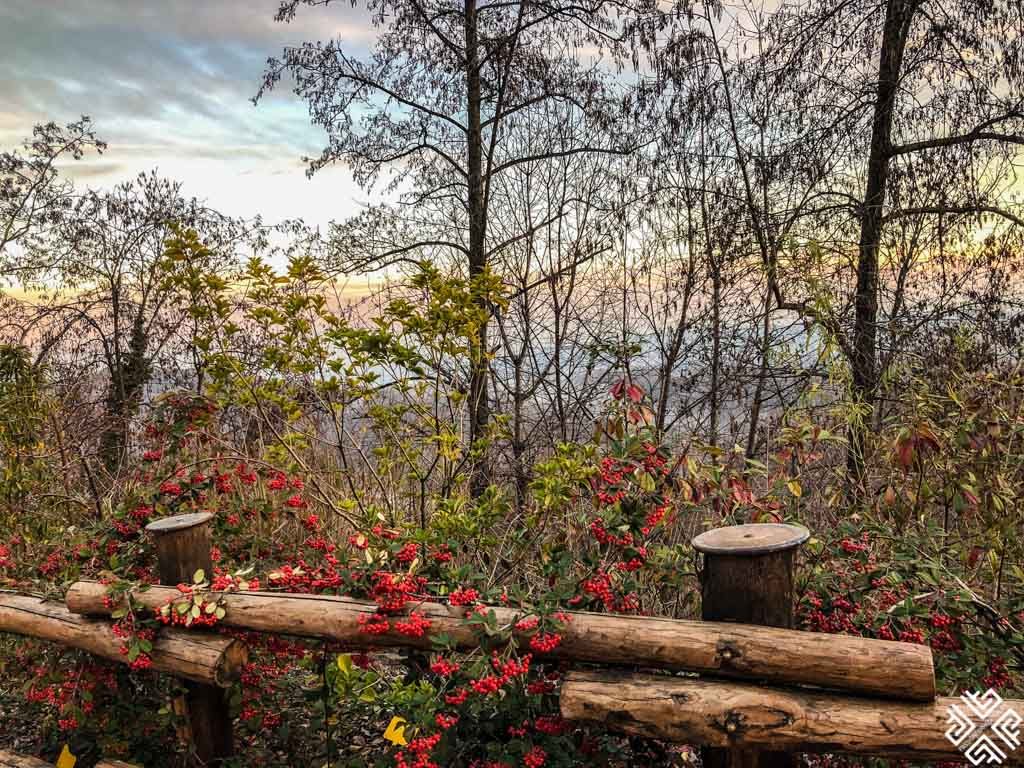
If it’s simply out of curiosity or in search of a deeper meaning, I urge you to take this journey to Damanhur. I am certain that it will be a meaningful discovery.
If anyone has been to Damanhur do share your experience in the comments below.
For more information on how to visit Damanhur check out their website: http://www.damanhur.org/en
Pin for later…
